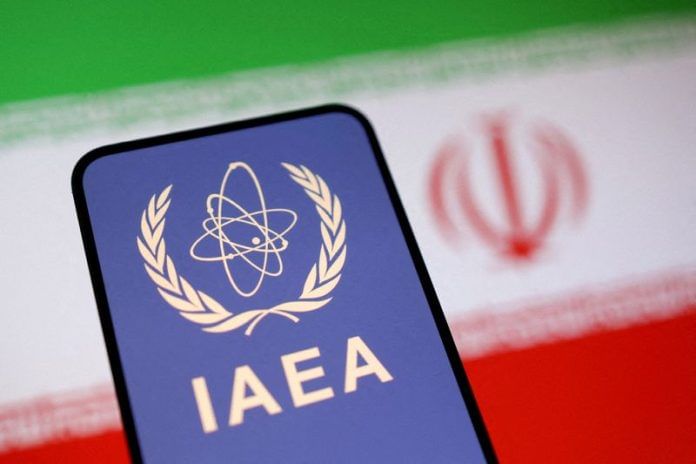DUBAI (Reuters) -Iran believes the moment for “effective” nuclear talks with the United States has not yet arrived, its top diplomat said on Wednesday, adding that Tehran would not completely cut off cooperation with the U.N. nuclear watchdog.
Tehran suspended negotiations with Washington, which were aimed at curbing the Islamic Republic’s nuclear ambitions, after the U.S. and Israel struck its nuclear sites in June.
Since then, inspectors from the International Atomic Energy Agency have been unable to access Iran’s nuclear installations, despite IAEA chief Rafael Grossi stating that inspections remain essential.
“In my opinion, we have not yet reached the point of maturity where effective negotiations with the U.S. can take place,” Foreign Minister Abbas Araqchi said in remarks carried by state media.
U.S. President Donald Trump and Israeli Prime Minister Benjamin Netanyahu have warned they will not hesitate to hit Iran again if it resumes enrichment of uranium, a possible pathway to developing nuclear weapons.
Iran, which denies any intention to develop nuclear weapons, vowed a forceful response to the threats.
European powers have threatened to activate United Nations sanctions on Iran under a “snapback” mechanism if Iran does not return to the negotiation table.
Araqchi said a meeting with Europeans could take place in the coming days, though “a basis for negotiations” has not been reached.
COOPERATION WITH IAEA
Last month, Iran’s parliament passed legislation suspending cooperation with the IAEA and stipulating that any future inspections will need a green light from Tehran’s Supreme National Security Council.
The legislation came after Tehran accused the IAEA of effectively paving the way for the Israel-U.S. attacks with a report on May 31 that led the agency’s Board of Governors to declare Iran in breach of its non-proliferation obligations.
Araqchi said in his remarks on Wednesday that Tehran was not cutting off all cooperation with the IAEA.
“The return of inspectors will be possible based on the parliament’s law, that is, with the approval of the Supreme National Security Council… So, it is not that we say we absolutely cut cooperation with the agency.”
Araqchi spoke two days after a foreign ministry spokesperson said Iran would continue talks with the IAEA and they would probably have another round of negotiations in the coming days.
(Reporting by Elwely Elwelly and Nayera Abdallah; editing by Michael Georgy, Mark Heinrich and Gareth Jones)
Disclaimer: This report is auto generated from the Reuters news service. ThePrint holds no responsibility for its content.




